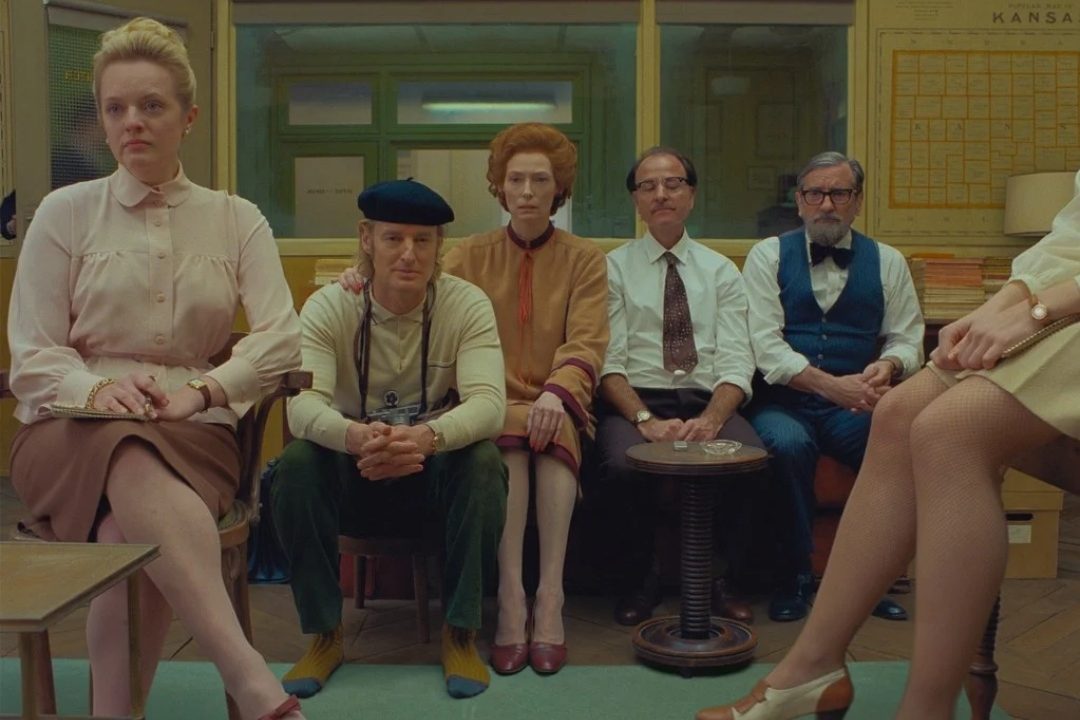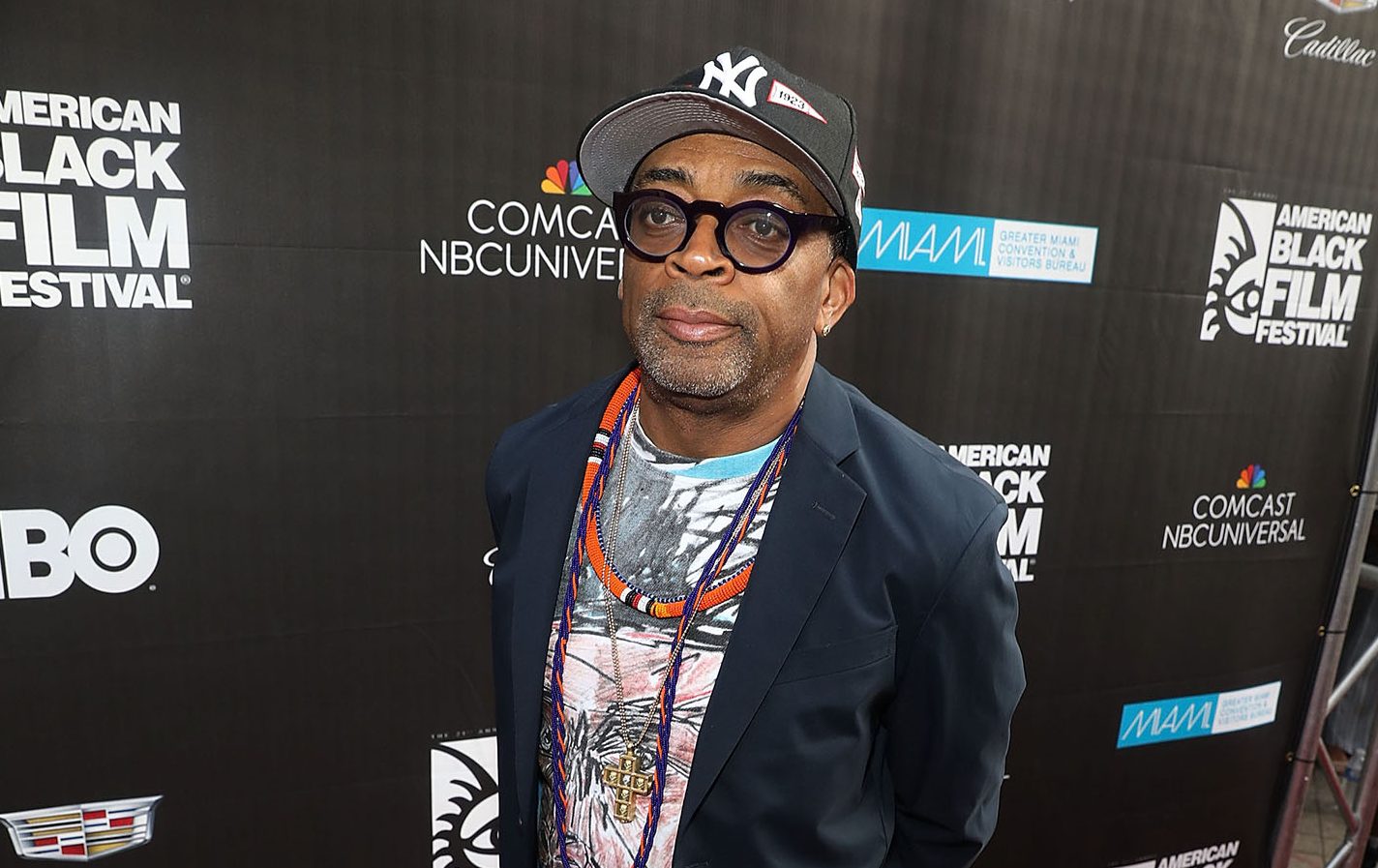This is the latest volume of the French Dispatches, our on-the-ground coverage of the 74th Cannes Film Festival, which is back in 2021 after a yearlong hiatus due to COVID-19. Watch this space over the next fortnight for more.
Cannes instills a reverence of art the old-fashioned way, through stratified social class. During premieres, holidaygoers throng the Croisette behind barriers, as festival-branded Renaults ferry the important people to the red-carpet steps of the Lumière for nightly galas, where black tie is mandatory for all attendees. If you’re scurrying around between other screenings, you’ll see people in evening dress smoking or hanging around — not famous, maybe, but important enough to bring tuxedos on vacation. Sometimes the TVs around the Palais play live feeds of the artists making their Lumière entrances before screenings and accepting their obligatory standing ovations after; sometimes they play loops of the day’s press conferences and photo calls, in which filmmakers and stars hold forth and pose for gaggles of their professional amanuenses in a reminder both of their glamour and importance to posterity.
My first time here, I’ve been so impressed by the kindness and organization, and most of all the sheer volume of the Cannes staff and volunteers — the ambassadors in their flight-attendant navy blazers and dresses with golden palm pins; the girls manning the free Nespresso bar in their uniforms of white t-shirts, khaki shorts and white Converse low-tops; the soldiers in fatigues carrying their assault rifles up and down the Croisette. As a critic at Cannes I feel very conscious of being middle-class, catered to by rent-a-servants while scrambling for a glimpse of the elite.
A defiantly nostalgic reverence for the finer things in life, for high culture in general and French culture in particular, also animates Wes Anderson, who was here on Monday night with The French Dispatch, his most autobiographical-seeming work since Rushmore, though in a very different way.
“The French Dispatch” is an English-language weekly published in “Ennui-sur-Blasé”; the city is obviously Paris and the magazine is obviously the New Yorker. The mockups of both are loving little miniatures, like the Belafonte cross-section in Life Aquatic or the foxes in Fantastic Mr. Fox, with narrow streets and stone buildings with high ceilings and shingled roofs, and writers obviously modeled on Ved Mehta and Joseph Mitchell and witty illustrated covers that play over the end credits. (If you’re so inclined, you can spend the whole movie playing spot-the-reference.) The film is structured like a magazine, with largely self-contained vignettes representing a Talk of the Town-style piece, features in the Life and Letters, Our Far-Flung Correspondents and Annals of Gastronomy tabs, and what the New Yorker calls a “Postscript.”
The omnibus style gives Anderson a chance to play around with different historical aesthetics and different personal preoccupations. The first mid-length feature, about a brilliant imprisoned painter played by Benecio del Toro and his model/muse/guard Lea Seydoux, has some knowing jokes about the art movements, gallerists and collector-patrons of the modern art years, and is, like sections of the Coen Brothers’ own anthology film The Ballad of Buster Scruggs, concerned primarily with art and money. He explores youthful romanticism in the section riffing on Mavis Gallant’s New Yorker dispatches from the barricades at the May 1968 student protests, with Frances McDormand as a flinty essayist with a credibly clipped, absolute prose style. The setting gives Anderson a chance to do some New Wave pastiche, with wild-haired Timothée Chalamet as his Jean-Pierre Léaud: he reads in bed in black-and-white scenes like Léaud in Eustache’s The Mother and the Whore, and shares color scenes, with popping primary colors and on-screen text, with a student played by Lyna Khoudri, who looks quite like Anne Wiazemsky, Jean-Luc Godard’s second wife and Léaud’s costar in Godard’s student-radical film La Chinoise. A Rififi-type crime story, with Mathieu Amalric dressed like Inspector Maigret, interrupts what was supposed to be an unfactcheckable A.J. Liebling-style tall tale about culinary adventures in unlikely places, in this case a prison chef.
Like so many Anderson films, this is an exercise in world-building that begs to be read as a metaphor for itself. Anderson’s usual father figure Bill Murray plays the inscrutable and indulgent William Shawn-like founder and publisher of the French Dispatch, Arthur Howitzer, Jr., originally of Kansas — a place as flatly American as Anderson’s own native Texas — who decamped to Paris to reinvent himself and assembled an ensemble of talented misfits played by many of the Parisian Anderson’s favorite actors. The French Dispatch is unabashedly sentimental about the Golden Age of print journalism, both its creative license and its expense accounts, as well as about Howitzer personally. This, so far, is familiar territory for Anderson — dreamy world-building and surrogate families are his most frequent subjects, and Howitzer is in like with Max Fischer, Steve Zissou and M. Gustave. But it’s newly and surprisingly open of Anderson to also include another character, Jeffrey Wright as a James Baldwin figure (smoking through an appearance on a Dick Cavett-like talk show), who speaks frankly and mournfully of the loneliness of the expatriate American, searching for a home in France.
Anderson, no less than the Cannes Film Festival itself, is particular and idealistic in his veneration of art and artists. So much of the program at Cannes is scheduled around stars’ availability; this second half of the festival was supposed to be Lea Seydoux Week on La Croisette, with the rising leading lady of French cinema expected to turn out for four red carpet premieres in as many nights. After The French Dispatch comes Arnaud Desplechin’s Deception on Tuesday, and then her star turns in Competition titles The Story of My Wife and Bruno Dumont’s France. Alas, la nouvelle reine is self-isolating, having contracted COVID-19. France, and France, will have to soldier on without her.
This article was featured in the InsideHook newsletter. Sign up now.























